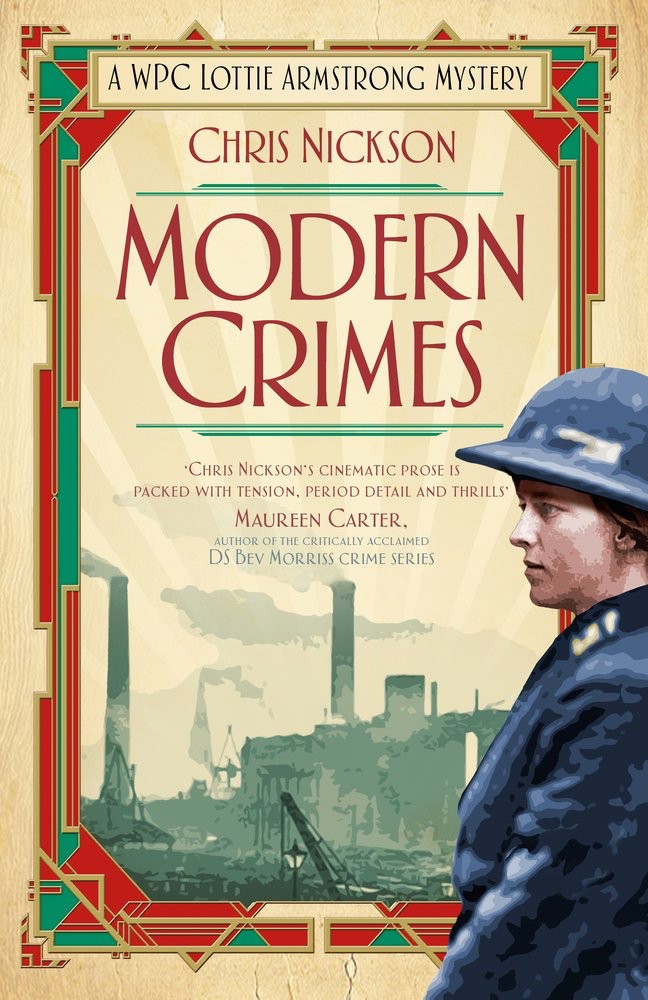
Although women played a key role in the police service from the outbreak of War in 1914, when the Women’s Police Service was created by Nina Boyle and Margaret Damer Dawson, the role of the WPC was strictly reserved to dealing with issues such as prostitution and cases where women were involved. The first serving WPC to be granted full powers of arrest was Edith Smith who served in Grantham and died in 1924, the year in which our mystery is set.
Charlotte ‘Lottie’ Armstrong and her partner Cathy Taylor are the only two WPCs in Leeds and as the book opens they’ve been called to a house that takes in unmarried mothers. One of the girls has gone missing and the pair must find 17-year-old Jocelyn Hill, who is eight months pregnant. Is she a runaway, or is Lottie about to get her first serious case?
The hunt for Jocelyn leads them to unsavoury parts of the city and soon it’s taken away from Lottie and Cathy and passed over to CID. However, in the process of their initial investigation, Lottie manages to catch the attention of Inspector Carter who briefly assigns her to work alongside Detective Sergeant John McMillan. The discovery of a dead man alongside a seriously injured Jocelyn turns this into a much more complex investigation – especially when the deceased happens to come from a well-to-do family and had links to the local criminal underworld.
The partnership between Lottie and McMillan is the driving force behind the book. For her, the chance to work on something bigger is an opportunity to show her superiors exactly what she can do, and to move a step beyond what policewomen were normally allowed to tackle. McMillan is far more enlightened than many of his other male colleagues. He spots her potential as a detective, shares her frustration when she is continually bounced back down into uniform, and gives her plenty of encouragement.
The investigation progresses thanks to Lottie’s ability to get witnesses to talk, and the fact that she has already made some key contacts in the areas of the city where the case takes them. However, when the investigation turns into a murder inquiry fairly early on in proceedings, Lottie does show her naivety in recognising the level of danger she could find herself in. Rowdy youths spoiling for a punch up she may well be used to. Even if she’s not meant to deal with it. Men with guns are another matter entirely, and this is where McMillan serves as both her guide and protector.
You really get a feel for both the time period and location in Modern Crimes. Chris Nickson is very good at painting a picture of the class divide, especially when it comes to the living conditions of the poor. What’s more, he creates characters you actually care about. You share Lottie’s sense of frustration and feel a sense of injustice when you see how female police officers were treated. The fact that it’s set at a point just after a war, during which women were expected to assume male working roles, seems to highlight the fact that there was still a long way to go in terms of gender equality.
The second book in the Lottie Armstrong series, The Year of the Gun, takes us forward twenty years to 1940s Leeds, and is due for release in autumn 2017.
The Mystery Press
Print/Kindle/iBook
£2.84
CFL Rating: 5 Stars